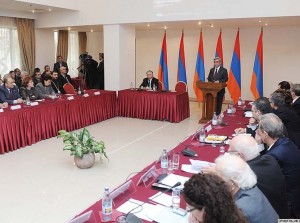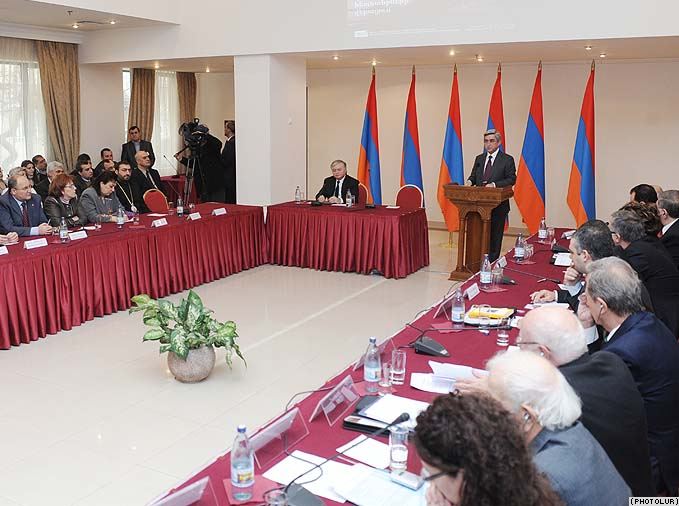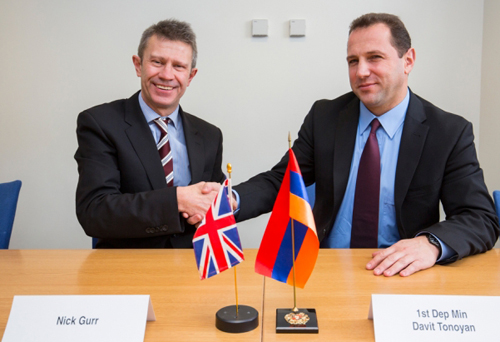YEREVAN — International two-day scientific conference “The Crime of Genocide: Prevention, Condemnation and Elimination of Consequences” launched today in Yerevan. Authoritative historians and scientists from almost 2 dozen of states – France, Argentina, Switzerland, Netherlands, Belgium, Greece, Italy, Germany, Dania, Ireland, Hungary, USA, Canada, Austria, Lebanon, Egypt, Israel, Japan, participate in the event.


“The bitter lessons of the Armenian genocide did not go down in the history and memory of humankind as mere memories of the past. They came to be replaced by the horrors of the Holocaust and the tragedies in Rwanda, Darfur and many other places,” he said in a speech at the two-day forum attended by genocide scholars from about 20 countries.
Sarkisian complained that “political expediency and short-sighted opportunism” often shape governments’ attitudes towards past and present genocides.
“Issues related to the prevention and condemnation of genocides as well as the elimination of their consequences must be on the international community’s agenda,” said Sarkisian.
Foreign Minister Edward Nalbandian made the same point. “Genocide denial and impunity pave the way for new crimes against humanity. Regardless of geopolitical or other interests, the international community must be united in condemning and preventing genocide,” Nalbandian told conference participants.
One of the participants, prominent U.S.-Armenian historian Richard Hovannisian, suggested that Armenia’s government has toughened its position on genocide recognition since the collapse of its normalization agreements with Turkey. “It seems to have become more determined,” Hovannisian told RFE/RL’s Armenian service.
Sarkisian’s policy of rapprochement with Turkey has triggered a barrage of criticism from many in Armenia and its worldwide Diaspora. They say that Ankara has exploited it to keep more countries from recognizing the slaughter of some 1.5 Ottoman Armenians as genocide.
Taner Akcam, a U.S.-based Turkish scholar also participating in the conference, said such recognition would make it much harder for the Turkish state to claim that Armenians died in much smaller numbers and not as a result of a premeditated government policy.
“I strongly recommend recognition of the Armenian genocide,” Akcam told journalists. “This is also important for the prevention [of more genocides,]” he said.
International Scientific Conference Dedicated to Genocide Prevention and Condemnation Opens in Yerevan
- No comments
- 2 minute read
The Positive Outcomes of the Brussels Meeting
By: K. KHODANIAN Last September, Azerbaijani troops invaded Artsakh, prompting over…
- MassisPost
- April 14, 2024
- No comments
- 2 minute read
It’s Not Armenia That Has Distanced Itself From Russia, but Rather the Other Way Around
By K. KHODANIAN Armenia and Russia are experiencing notable tensions in their…
- MassisPost
- April 7, 2024
- No comments
- 2 minute read
Stating the Obvious: Kigali Genocide Memorial and the Armenian Genocide
Gomidas Institute Initiates Campaign on Kigali Genocide Memorial and the Armenian…
- MassisPost
- April 7, 2024
- No comments
- 3 minute read
How an Armenian Family Helped in Building Modern Egypt
By ARUNANSH B. GOSWAMI Recently the author of this article was in…
- MassisPost
- April 5, 2024
- No comments
- 5 minute read










